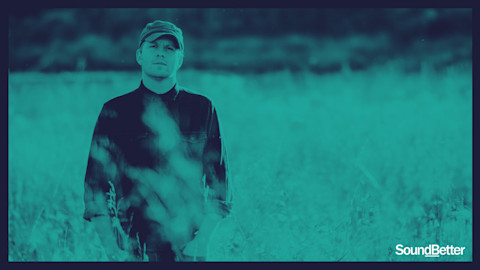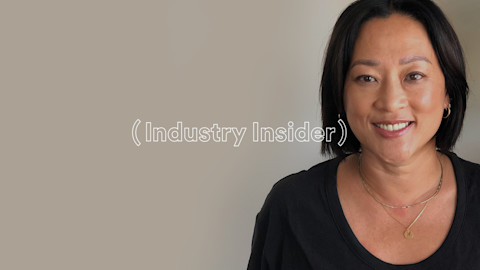CEO and Founder Tatum Allsep talks about the Nashville organization’s role in finding health insurance and disaster help for those in the music biz.
Nashville’s Music Health Alliance is supported by Spotify through its COVID-19 Music Relief project. In addition to its own contributions, Spotify will match public donations made via the above-linked page, dollar-for-dollar, up to a total of $10 million. Information about who potentially qualifies for an MHA relief grant and how to apply can be found here.
Music Health Alliance’s Tatum Allsep knows the crushing stress of the American healthcare system firsthand. When her twins were born 18 years ago, premature and needing to stay in the NICU, the nonprofit’s CEO and founder was slapped with a half-million-dollar bill for the costs—and that was with health insurance. She got a loan co-signed by her grandfather and liquidated all of her assets to eventually pay down the debt, not knowing there were other ways out, like negotiating the bills or appealing the insurance carrier’s decision. “I thought I had an isolated incident and I didn’t,” Allsep says over the phone from her Nashville home. “So many people in the industry were experiencing the same thing.”
A veteran of the music business for over two decades, Allsep has managed Austin, TX Americana group The Derailers, spent six years in promotions at MCA Records, and launched the Office of Music Industry Relations at the Vanderbilt University Medical Center, where she created connections among the facility, the Monroe Carell Jr. Children’s Hospital at Vanderbilt, and the local music community. Given that the industry is primarily built on small businesses and the self-employed, she knew that many of its workers are left without corporate benefits or HR departments to help navigate health-care issues.
That’s why, in January 2013, Allsep founded MHA, which provides free health-care advocacy to people in the business by finding them appropriate and affordable insurance, guiding them through the labyrinthine systems, and helping them receive the services and treatments they need.
Providing much-needed access
“I started this non-profit to help the music industry with all things health care, from birth to end-of-life, as a navigator, resource provider, and educator,” Allsep says. “We protect, direct, and then we connect, so we can make sure you get access to what you need, it’s paid for, and then we’ll continue with you through the process as long as you need us. In the US, a lot of people may not qualify [for insurance], so we look at federal and state options and grants. Then we listen to what the individual need is. Every scenario is different: If your need is trauma assistance because you’ve been in a shooting, we will help you find the person who best meets that. And then we connect you with that need.”
This year, Nashville was already devastated after a deadly tornado ripped through Music City in March, destroying homes, venues, and many artists’ possessions. This disaster shifted MHA’s focus from health coverage to the immediate needs of the city’s residents, a change that prepared them well for the COVID-19 crisis that would soon hit the country and shut down all live performances.
“This is such a marathon, not just a sprint—which is what we were all hoping for in the beginning,” Allsep says. “This seems to be something that's going to affect music people for a long time. [In March], we were like, 'Okay, here's our plan, here's what we're going to provide.' The immediate needs people had were food, diapers, and formula. It was easy to see that need was going to come, too, with COVID, because with the tornado, people lost their income overnight.”
One of MHA’s greatest strengths is the staff’s collective experience of knowing that the bureaucracy of health care makes it difficult to navigate for nearly everyone, let alone artists, touring professionals, studio managers, lighting techs, etc. “All of our staff, we're from the music industry, so we're not coming into this as accountants,” Allsep says. “We get it, we've lived it, we've been a part of it. There's not a job in the industry that somebody in our office hasn't done, so we understand where you're coming from. Nobody has to be embarrassed because they don't know what this line on the tax form means or how income verification works. They're safe asking us about it because we've been there.”
The bee's knees
Philip Shouse, guitarist for the metal band Accept, is just one of many artists MHA has helped. Recently, he emailed Allsep to express his gratitude for the resources MHA has provided him, and one particular line he wrote stood out to her: “Y’all are the knees of all the bees.” Shouse has been using MHA’s services for around a decade now, and it’s allowed him to find both affordable insurance and therapy through the organization’s partnership with MusiCares, the charitable arm of The National Academy of Recording Arts and Sciences.
“Recently, I contacted [MHA] and they were offering some relief for groceries and health insurance,” Shouse, who’s also played with Gene Simmons and Ace Frehley, recalls. “I said, ‘Hey, you know, my health insurance hasn't gone down, it hasn't gone away, and I haven't been forgiven any payments,’ so I got a check from them for that. They've always been able to help me and a lot of my friends and colleagues, whenever anybody needs [it]. They're a fantastic organization.”
In April alone, Allsep says that MHA positively impacted 1843 lives. They provided 165,870 meals for over 700 families, as well as financial assistance for medicine, doctor visits, and health insurance premiums—for only $96,000. “That is such a tiny amount of money to help so many people,” she says.
But more than that, Allsep says the most important service MHA provides is that it makes people going through some of the hardest times of their lives feel less alone.
“Our human interaction is the most valuable piece of the services we provide. Because it's hope-filled, you know? We can offer each other a lot, human to human. I hope that's the silver lining we find—we remember how to talk to each other again.”
—Matt Williams
Popular Stories
video
How Julia Wolf Made It




